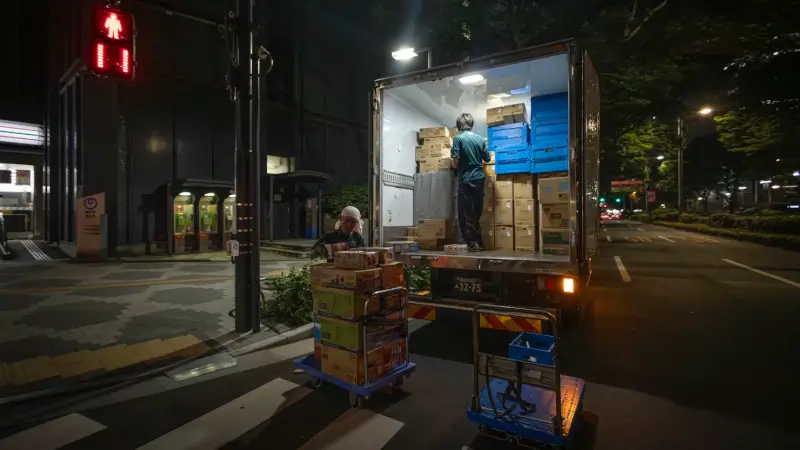Japan has announced plans to build an automated cargo transport corridor between Tokyo and Osaka, known as a “conveyor belt road,” to tackle a shortage of truck drivers and cut carbon emissions. This innovative project, spearheaded by the Ministry of Land, Infrastructure, Transport and Tourism, is envisioned as a fully automated, 24-hour system moving large, wheeled containers along a designated three-lane corridor in the middle of a highway. The first test runs are expected by 2027 or early 2028, with full operations anticipated by the mid-2030s.
Yuri Endo, senior deputy director at the Ministry, emphasized the need to rethink road logistics amid labor shortages and rising delivery demands. “The auto flow-road concept is to dedicate spaces within the road network solely for logistics, creating a new level of efficiency in transportation,” she explained. Beyond addressing Japan’s “2024 problem”—a labor issue tied to newly imposed limits on truck drivers’ overtime hours—the system is expected to reduce emissions and alleviate the workload for Japan’s aging driver workforce.
The corridor is designed to coordinate seamlessly with other modes of transport, such as airports, railways, and ports, with automated forklifts loading and unloading the nearly six-foot-tall, wheeled containers. Although last-mile deliveries may still require human drivers, driverless technology could handle these tasks in the future.
Japan’s driver shortage problem is significant: nearly 90% of the nation’s cargo relies on trucks, but recent government estimates suggest transport capacity may decrease by 34% by 2030 due to the shortage. The 2024 law limiting overtime is aimed at preventing overwork and accidents, as trucking has historically seen high annual fatalities, which remain around 1,000 deaths per year despite safety improvements.
Japan’s transport challenge is compounded by a boom in online shopping, with demand for deliveries rising from 40% to over 60% of households during the pandemic. Consumer behavior, driven by free shipping expectations, has led industry experts and the Japan Trucking Association to urge restraint on orders and encourage order bundling.
Similar automated transport projects are being explored in Europe, including an underground pathway in Switzerland and a fully automated corridor in London using cost-efficient linear motors. However, Japan’s unique population density and low crime rates offer particularly favorable conditions for the auto-flow road concept.
Yuji Yano, a professor at Ryutsu Keizai University specializing in logistics, stressed the broader implications of the driver shortage: “The 2024 problem isn’t just a transportation issue; it affects the entire population.”





